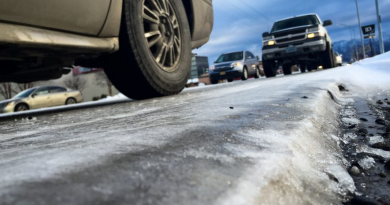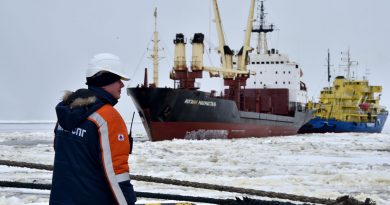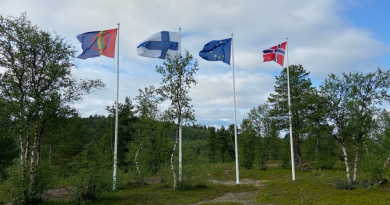Int’l Arctic emergency marine exercise will lead to better response coordination, say participants
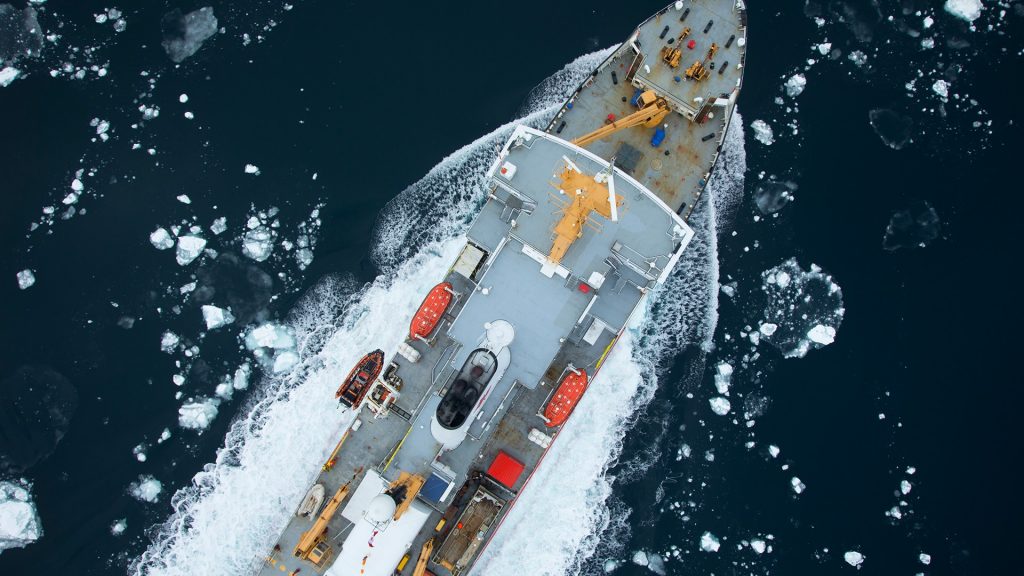
An international marine exercise wound up last week and although the report won’t be out for a while, participants say it’s already provided valuable information for future emergencies.
The Arctic Council and the Arctic Coast Guard Forum launched their Arctic Guardian 2021 exercise April 12-14. The goal of the exercise was to practice the Arctic Council’s two legally binding agreements: The Agreement on Cooperation on Marine Oil Pollution Preparedness and Response in the Arctic and Agreement on Cooperation on Aeronautical and Maritime Search and Rescue in the Arctic.
Both agreements are between the eight circumpolar countries that make up the Arctic Council, and were signed to help facilitate cooperation and coordination in the event of an accident or unfolding environmental emergency in the North.
The Arctic Coast Guard Forum is an informal organization set up by the eight circumpolar countries in 2015 to work on strengthening coast guard cooperation and help foster responsible maritime activity in the Arctic.
The scenario practiced this month was hosted by Iceland and involved a collision off the northern Icelandic coast between a medium-sized oil tanker and an expedition cruise vessel with 250 passengers on board.
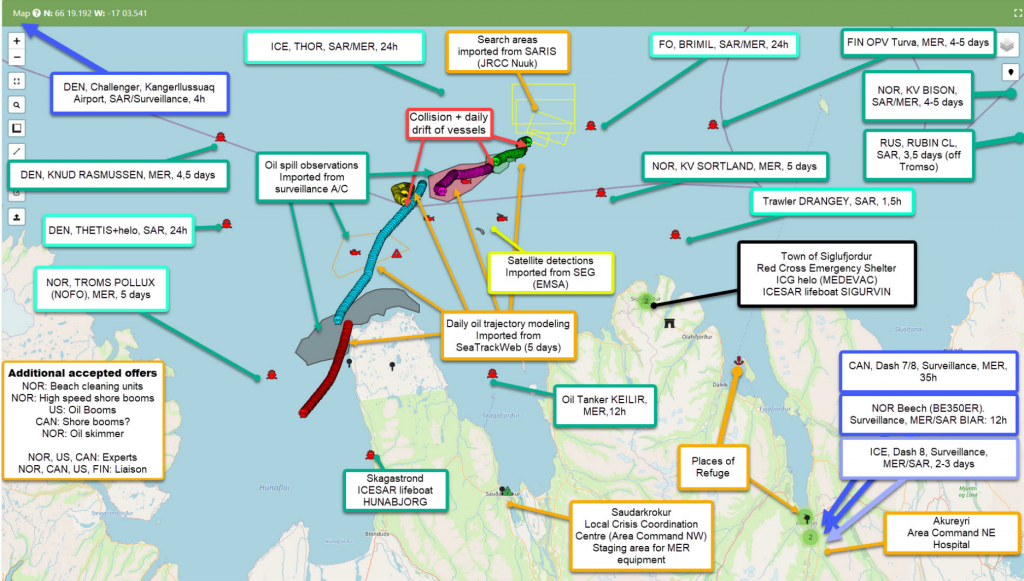
Arctic Guardian 2021 was initially conceived to be their first joint live exercise between the Arctic Council and the Arctic Coast Guard Forum but was moved online because of the pandemic. But despite the last minute change, participants said the exercise was a valuable experience.
“Live exercises offers other learnings and experiences than table top exercises, but the [Arctic Council’s Emergency Prevention, Preparedness and Response working group] and the [Arctic Coast Guard Forum] cannot control a pandemic,” Jens Peter Holst-Andersen, chair of the EPPR told Eye on the Arctic.
“Every exercise offers new opportunities for learning, and with the dedication from all it was a great exercise.”
Recommendations coming

A report will now be compiled to outline any lessons learned from the exercise, as well as how cooperation, search and rescue and marine environmental response might be improved.
But a better understanding of Icelandic incident management systems, response preparedness in the Arctic and improved cooperation between the Emergency Prevention, Preparedness and Response working group Arctic Coast Guard Forum are some of the main areas immediately highlighted, Holst-Andersen said.
“Being the host is also an opportunity to share knowledge about your systems and operations which is extremely important between partnering nations who are signatories of both the SAR and Oil Spill Agreements,” he said.

Dan Cowan, a member of the Canadian Coast Guard and chair of the Emergency Prevention, Preparedness and Response working group’s Marine Environmental Response Expert Group, said the virtual format also had the advantage of allowing more involement.
“Arctic Guardian 2021 delivered a number of firsts, such as having the policy-oriented EPPR exercising directly with the operations-oriented ACGF,” he said.
“As pandemic restrictions shifted all our work online, the exercise featured wider and more inclusive participation which fueled a rich dialogue informing lessons learned and recommendations for improvement.”
Integrating Canadian expertise into exercise
Canada is a member of both the Arctic Council and the Arctic Coast Guard Forum and had leadership roles in the planning, development and execution of the exercise. The scenario also practiced the challenges and opportunities of integrating Canadian assistance offers into a multi-laterial coordinated response to an Arctic emergency.
“The exercise was specifically designed in a manner such that the scenario, discussion items and learnings are able to be directly translated into a Canadian context, despite the exercise location being in northern Iceland,” said Steve Thompson, a member of the Canadian Coast Guard and deputy chair of the combined operations working group of the Arctic Coast Guard Forum.
“The success of Arctic Guardian 2021 is already impacting how we plan to exercise moving forward.”
Besides the Canadian Coast Guard, other federal Canadian departments involved included Transport Canada, the Canadian Armed Forces, the Canada Energy Regulator, and Environment and Climate Change Canada.
Year formed: 1996
Arctic Council Members: Canada, Denmark (Greenland), Finland, Iceland, Norway, Sweden, Russia, United States
Permanent Participants: Aleut International Association, Arctic Athabaskan Council, Gwich’in Council International, Inuit Circumpolar Council, Russian Association of Indigenous Peoples of the North, Saami Council
Current Chair: Iceland (2019-2021)
Upcoming Chair: Russia (2021-2023)
Live exercise planned for future
Russia assumes chairmanship of the Arctic Council and the Arctic Coast Guard Forum next month.
Holst-Andersen says it’s hoped a live exercise will still be arranged once the pandemic is over.
Write to Eilís Quinn at eilis.quinn(at)cbc.ca
Related stories from around the North:
Canada: Beef up Arctic search and rescue to keep Canada’s North secure, experts argue, CBC News
Denmark/Greenland: New guideline launched for Arctic-specific risk assessment in shipping, Eye on the Arctic
Norway: The Viking Sky incident – A wake-up call for the Arctic cruise industry?, Eye on the Arctic
Russia: Norway, Russia team up for search and rescue exercise in Barents Sea, The Independent Barents Observer
United States: More shippers and shipping companies boycott Arctic sea routes, but it isn’t solving the problem, experts claim, The Independent Barents Observer

